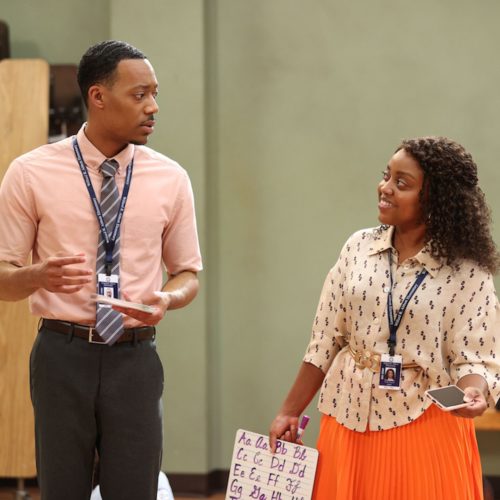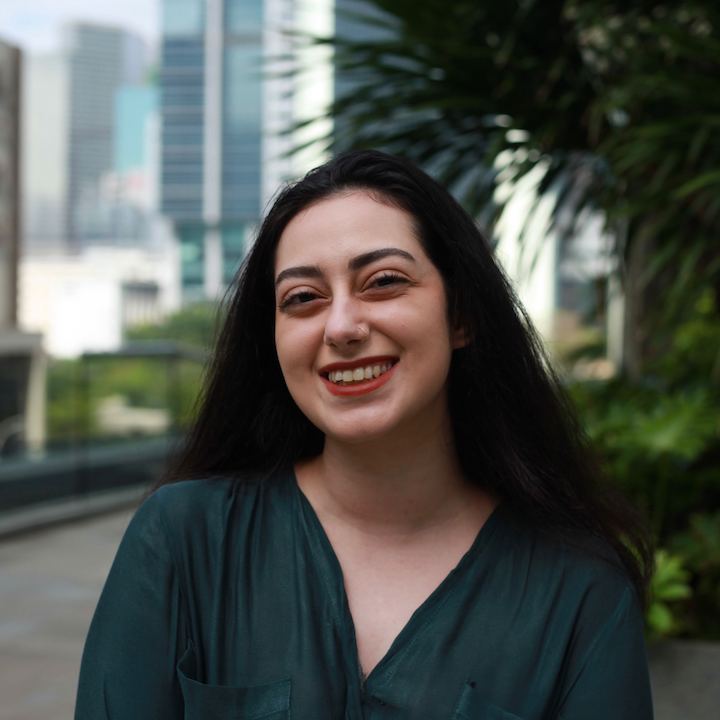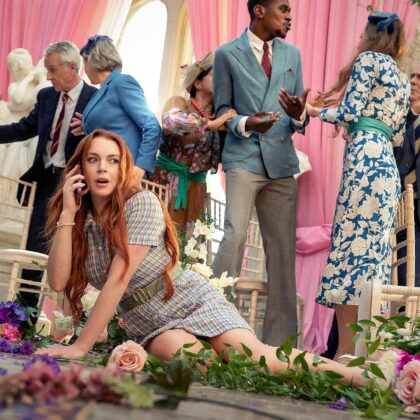Looking for your next binge-worthy show? Here’s what to watch based on the shows and series you already know and love — and it’s all available to stream in Hong Kong.
We’ve all been there, wrapping up a weekend watch or finally hitting the finalé of a longtime favourite show. Maybe you tried something a little different (a true-crime docuseries, a melodramatic soap, maybe even a feel-good sitcom) and you can’t get enough of it now. Don’t worry — we got you covered. These shows aren’t quite underrated (although this writer promises she was watching from the very first episode!), but they are fairly new and gave us moments of deja vu. If you’re looking for your next watch, here are the shows to check out.
Read more: New On Netflix Hong Kong
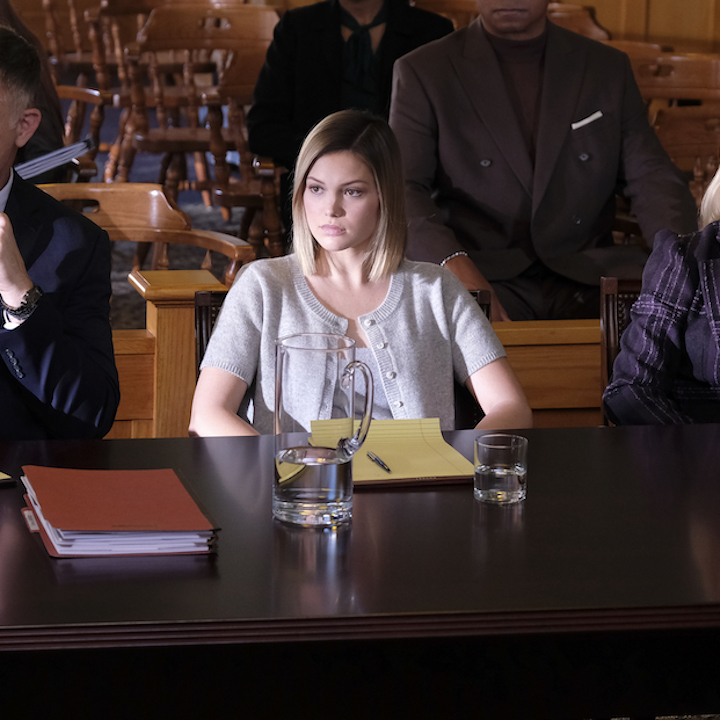
If You Liked “Pretty Little Liars”, try “Cruel Summer”
For fans of whodunnit thrillers:
The tone of this show isn’t quite like Pretty Little Liars, which was a little more soap-y in nature and looked at the ins and outs of popularity and high school hierarchies. Instead, Cruel Summer‘s similarities to the former include airing on the same network and centring around a mystery.
Framed like a true-crime docuseries, this show uses a clever storytelling method where each episode shows us the same day over three years: 1993, 1994 and 1995. We follow two teenage girls after one goes missing and the other mysteriously takes over her life through multiple lawsuits that make some deeply unsettling claims. Who do we believe? Who’s telling the truth? You’ll have to watch to the end to really find out!
You can rent or buy the show in Hong Kong on Amazon Prime Video. Watch the trailer here.
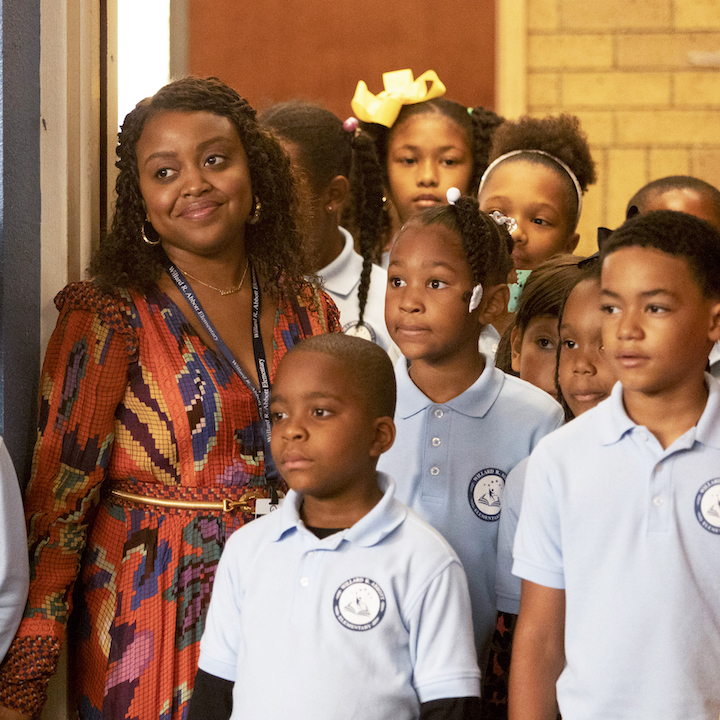
If You Liked “The Office” and “Superstore”, try “Abbott Elementary”
For fans of workplace sitcoms:
A mockumentary show focusing on a group of dedicated, passionate teachers “and a slightly tone-deaf principal” at a Philadelphia public school, Abbott Elementary is a real joy to watch! It’s the perfect series to get stuck into if you’ve been missing big workplace-set sitcoms with near-bizarre characters and situations that are somehow still realistic to watch. The setting is accessible and ordinary (an elementary school!), making it that much easier to laugh with the characters at the sort of nonsense that could only happen there.
The show has a big heart, with creator Quinta Brunson taking inspiration from real people all around her including her mother, who is a longtime kindergarten teacher at a Philly school, and countless teachers across the nation who she interviewed to nail down those clever true-to-the-job details. Our main character Janine really loves teaching — and the show never laughs at her for it, choosing to instead poke at authorities who don’t do enough to fund schools and support working-class children. And if you miss that Jim and Pam romance, Brunson has been setting up our next favourite slow-burn ship…
You can watch the show in Hong Kong on Disney+. Watch the trailer here.
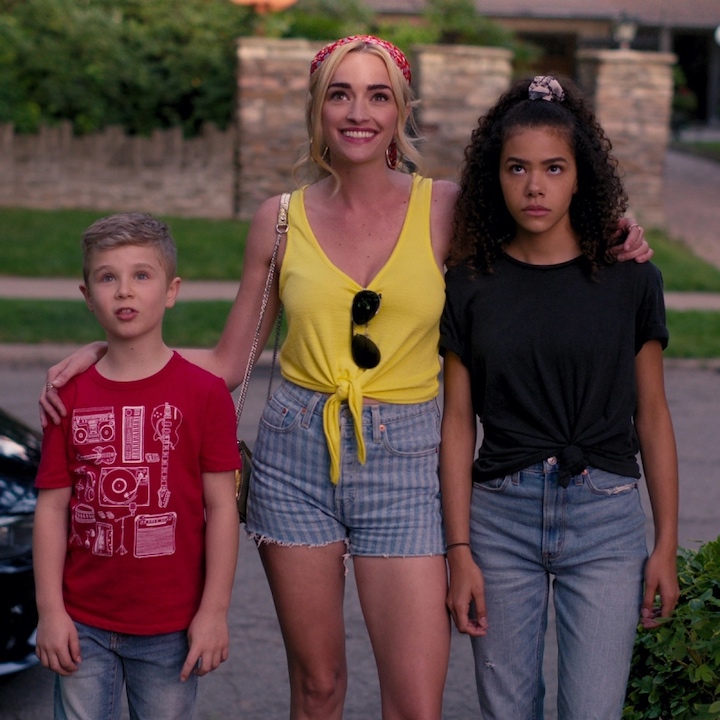
If you liked “Gilmore Girls”, try “Ginny & Georgia”
For fans of small-town dramas featuring a mother-daughter duo:
Gilmore Girls is more of a slice of life while Ginny & Georgia is a fast-paced watch with high-tension stakes including murder and abuse. What the shows have in common instead are their small-town settings, where everyone knows everyone and are all in each other’s business — constantly. Gossip and rumours can make or break a person here.
Its other commonality is revolving around a duo featuring a youthful single mother and the daughter she had too young (something Ginny & Georgia make reference to in-show), letting viewers into their lives as we watch them realise they’re more alike than they were anticipating. And if you ever watched Degrassi, keep an eye out for alums, there’s more than one familiar face in this series.
You can watch the show in Hong Kong on Netflix. Watch the trailer here.
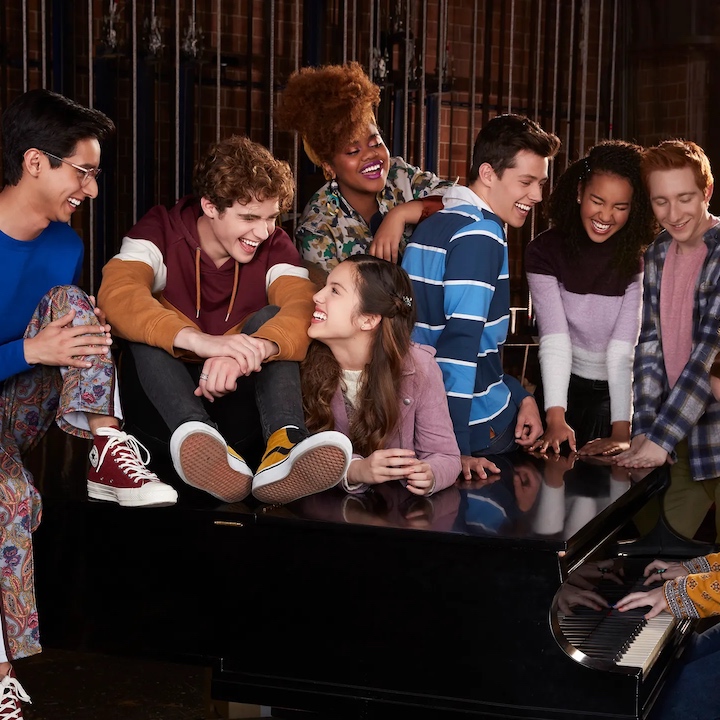
If you liked “Glee”, try “High School Musical: The Musical: The Series”
For fans of chaotic musical (theatre) kids:
Hear us out! The chaotic nature of Glee is pretty unmatched, but this light family-friendly show that spins off a millennial favourite comes pretty close. Even its name is ridiculous. Both shows feature high school kids who are musically talented and made for performing, with plenty of off-screen drama to keep the series going.
This is definitely a kid’s show but it’s worth a watch if you’ve missed theatre hijinks, musical numbers, and earnest characters with big Broadway dreams. HSMTMTS was actually Olivia Rodrigo’s big break, but don’t underestimate the other stars of this series — who are all incredible singers and a joy to watch.
You can watch the show in Hong Kong on Disney+. Watch the trailer here.
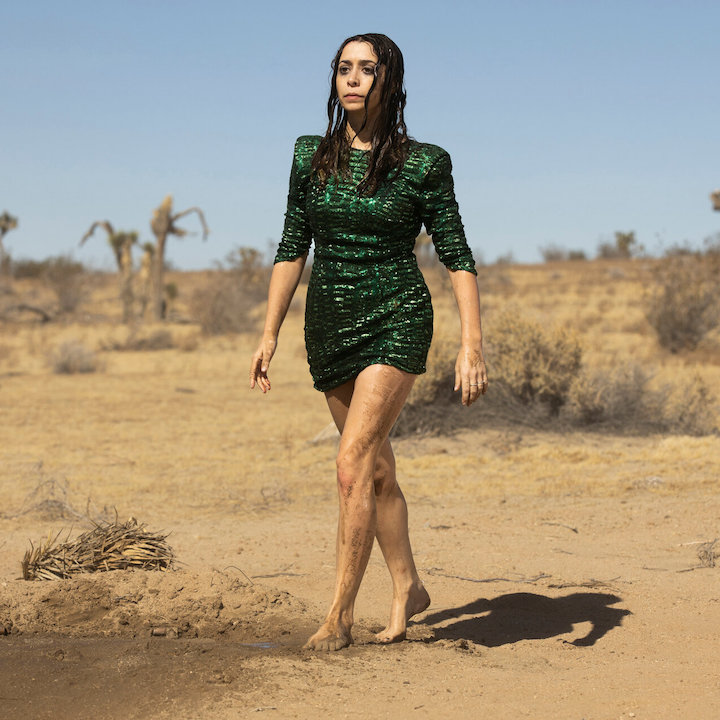
If you liked “Black Mirror”, try “Made For Love” and “Upload”
For fans of dystopian high-tech:
While Black Mirror is an anthology, with each episode featuring brand new characters and storylines — if you’re looking to get stuck into a dark comedy series where you get to see the beginnings and long-term consequences of nightmarish tech set in the near future, we’ve got not one but two recommendations.
In Made For Love, Cristin Milioti stars as a woman who escapes from a 10-year marriage only to find out her husband had her fitted with a tracking device, implanted in her brain. Upload, on the other hand, is a lot lighter, a satirical comedy revolving around a near future where people who are close to death can be “uploaded” into virtual reality afterlives.
You can watch Made For Love in Hong Kong on HBO Go on Now TV. Watch the trailer here.
You can watch Upload in Hong Kong on Amazon Prime Video. Watch the trailer here.
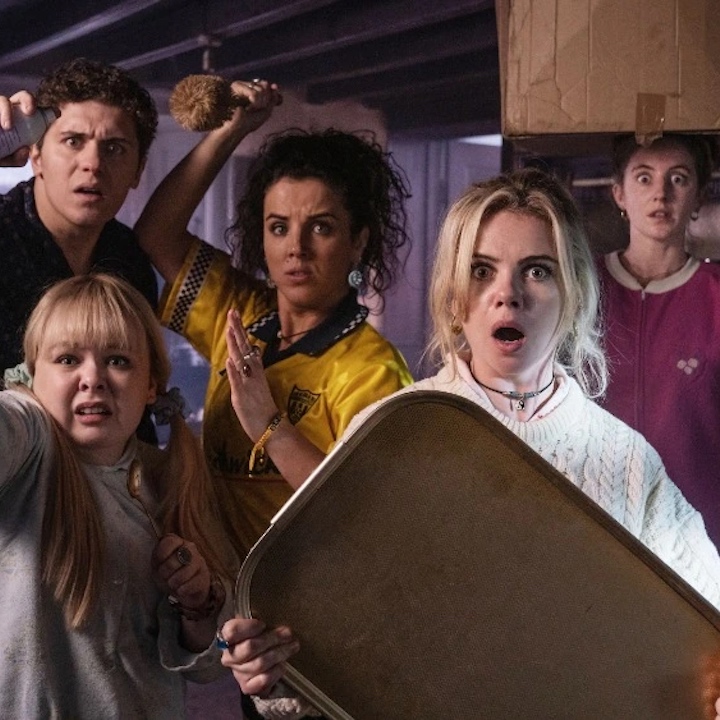
If you liked “On My Block”, try “Derry Girls”
For fans of lighthearted teen sitcoms with real-world backdrops:
Already missing the kids off On My Block? Us too! For something similar, we’re big fans of Channel 4’s Derry Girls. Both shows revolve around a group of teens growing up in a rougher neighbourhood — in On My Block, the backdrop is inner-city Los Angeles and in Derry Girls, it’s The Troubles (also known as the Northern Ireland conflict).
Set in 90s Derry, in Northern Ireland, the series follows a rag-tag group of Catholic schoolkids through absurd situations and wild adventures all amid political unrest, with the show incorporating real footage and events from the conflict. Despite its sombre setting, the series is a lot of fun and makes for a lighthearted binge watch with a lot of heart.
You can watch the show in Hong Kong on Netflix. Watch the trailer here.
Hero image courtesy of Raymond Liu/ABC, image 1 courtesy of Freefrom/Amazon Prime via IMDb, image 2 courtesy of Liliane Lathan/ABC, image 3 courtesy of Netflix, image 4 courtesy of Disney+, image 5 courtesy of HBO, image 6 courtesy of Channel 4.





 Eat & Drink
Eat & Drink



 Travel
Travel



 Style
Style



 Beauty
Beauty



 Health & Wellness
Health & Wellness


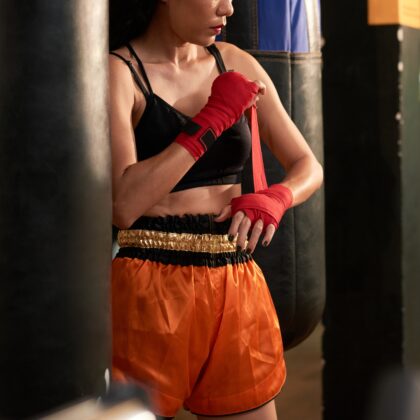
 Home & Decor
Home & Decor



 Lifestyle
Lifestyle


 Weddings
Weddings


